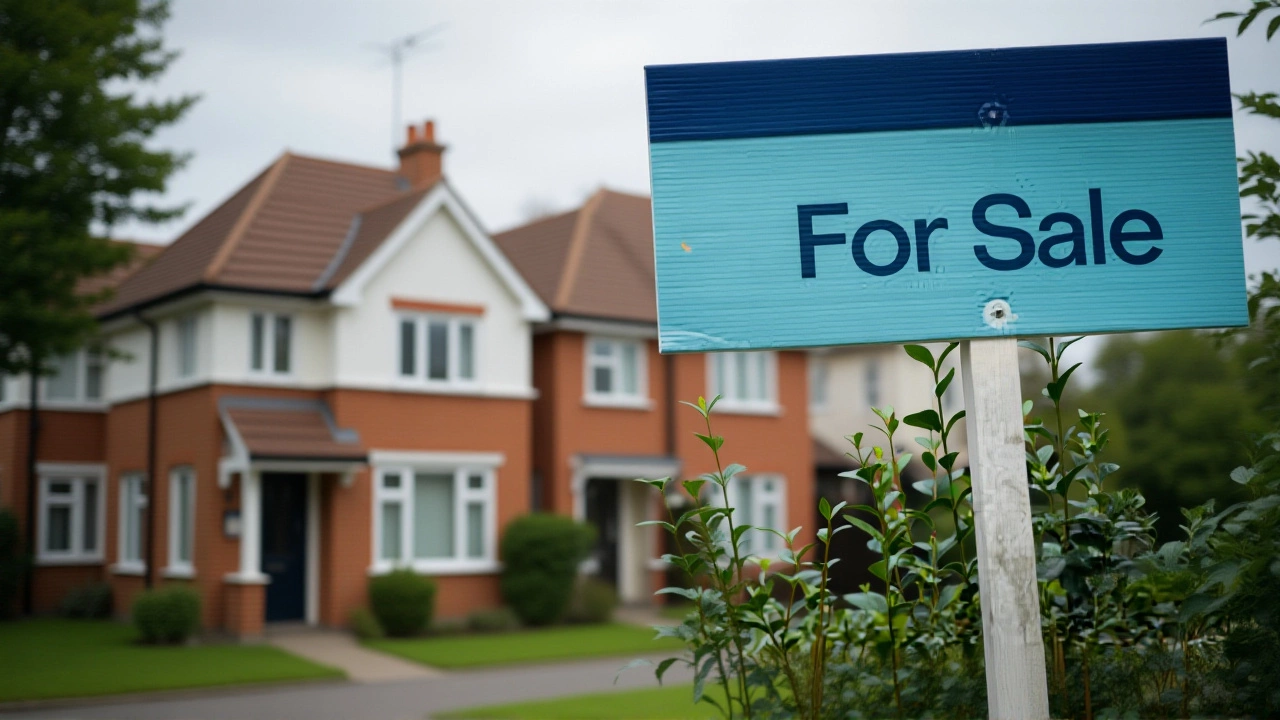When Michael B. Andrews, a deputy for St Helier North, lodged Proposition P.16/2025 in February, he set off a chain‑reaction that still ripples through Jersey's housing market. The debate, which reached a fever pitch on October 8, 2025, centres on whether the government should temporarily suspend the 3% stamp duty surcharge imposed on non‑principal‑residence purchases. The Minister for Treasury and Resources—whose name remains undisclosed—has flatly refused the industry’s plea for a holiday, arguing that the levy remains a vital demand‑side lever. Here’s why the decision matters to anyone trying to buy a home or rent out a property on the island.
Background: How the Surcharge Came to Be
Back on January 1, 2023, States Assembly introduced a 3% levy targeting buy‑to‑let and second‑home purchases. The goal, according to Deputy Andrews, was to temper “excess demand” and make room for first‑time buyers when credit was tightening. Early reports suggested the measure did its job—transaction volumes dipped, and a modest revenue stream was secured for the Consolidated Fund.
Fast‑forward to July 31, 2025, when Livingroom Property published an analysis titled “Merchants Square: The Buy‑to‑Let Surcharge Solution.” The piece warned that the surcharge was now creating “new challenges” for investors and secondary‑residence owners, especially as the market slipped into historically low activity.
Current Proposals: Pause vs. Raise
Two opposing bills are now jockeying for attention. The first, championed by Deputy Andrews, proposes a jump from 3% to 5% on all non‑principal‑residence sales, kicking in on January 1, 2026. Andrews estimates the hike could net an extra £1.2 million for the Treasury—a figure he floated after “talking to treasury officials” in his February filing.
The rival approach, detailed in Proposition P.51/2024, calls for a temporary, tiered reduction: 0% for homes up to £700,000, 2.5% for those between £700,000 and £1,000,000, and a taper up to £1,200,000. Anything above that stays at the full rate, and buy‑to‑let properties would retain the flat 3% charge. The amendment was re‑issued to fix an “unintended replication of impact on the Consolidated Fund.”
Stakeholder Reactions: Who’s Speaking Up?
Estate agents, led by Livingroom Property, argue that a short‑term holiday on the surcharge would rev up listings, lift transaction numbers, and give renters breathing room. “We’re seeing listings gathering dust,” said a senior broker who asked to remain anonymous. “A pause could be the catalyst the market needs after two years of stagnation.”
On the other side, the Minister for Treasury and Resources, speaking at a press briefing on October 8, stressed that “the surcharge remains a crucial tool for housing affordability.” The minister warned that “any suspension would undermine the progress made in giving first‑time buyers a fighting chance.”
Housing‑affordability NGOs have yet to release an official stance, though a draft Children’s Rights Impact Assessment (CRIA) linked to Proposition P.16/2025 hints at concerns over how higher taxes might affect young families seeking their first home.

Economic Impact: Numbers Talk
- Current 3% surcharge generates roughly £5 million annually.
- Projected £1.2 million boost from a 5% rate, according to Deputy Andrews.
- House Price Index shows a 45% price rise over the last decade, outpacing income growth by about 30%.
- Transaction volume fell 22% in 2024, the deepest slump since the 2008 crisis.
Economists from the University of Jersey note that while higher taxes could curb speculative buying, they also risk “driving capital out of the island” if investors find the cost too steep. Conversely, a temporary reduction could provide “a short‑term stimulus,” but might also create a revenue gap that the government would need to fill elsewhere.
Next Steps: What to Watch For
The earliest debate on the 5% increase is slated for March 18, 2025, but the Minister’s current stance suggests the issue will linger well into the next fiscal year. Meanwhile, the amendment for a temporary cut is expected to be tabled in the upcoming spring session of the States Assembly. If passed, it would be effective immediately and run for an unspecified period, though critics fear it could become a “sticky” policy that’s hard to unwind.
Both proposals also intersect with the “Stamp Duty and Land Transaction Tax group relief guidance” that expires on December 31, 2025. That deadline adds another layer of urgency for businesses that rely on corporate land transfers.

Historical Context: A Pattern of Intervention
Jersey has a track record of stepping in when housing affordability threatens social stability. In the early 2000s, the island introduced a “first‑time buyer discount” that lasted three years and successfully lifted sales among younger residents. The 2023 surcharge was the latest tool in that toolbox, reflecting a broader trend of using fiscal levers to shape market behavior.
What makes the current debate unique is the simultaneity of two opposite approaches being considered. It’s a rare moment when policymakers must decide whether to tighten the screws or ease them, each path carrying its own set of trade‑offs.
Frequently Asked Questions
How will the 5% surcharge affect buy‑to‑let investors?
A rise to 5% adds roughly £10,000‑£15,000 to the purchase price of a typical £300,000 rental property. That extra cost could deter some investors, especially those with thin margins, potentially reducing the supply of rental units in the short term.
What does a temporary surcharge holiday mean for first‑time buyers?
If the 3% levy were paused for, say, six months, a first‑time buyer on a £250,000 home would save £7,500. That cushion could make the difference between affording a mortgage and staying on the rental market.
Why is the government reluctant to suspend the surcharge?
Officials argue the surcharge provides a steady revenue stream that funds public services and helps keep housing affordable for locals by discouraging speculative buying. Removing it, even temporarily, could widen the gap between prices and wages.
When will the proposed 5% increase take effect if approved?
Deputy Andrews’ proposition sets the start date for the higher rate on January 1, 2026. The earliest parliamentary debate is scheduled for March 18, 2025, giving lawmakers several months to discuss and amend the measure.
What other tax measures could influence Jersey’s housing market?
Beyond the surcharge, the island is reviewing group relief provisions that end on December 31, 2025, and considering adjustments to capital gains tax thresholds. Both could affect investor behavior and overall market liquidity.
